Note: In 2021, I’m writing a new blog post every weekend or so. This is number 32 of 52.
Note: Turns out Matt Walker’s book Why We Sleep isn’t so excellent after all, contrary to what I said in this entry when I posted it on 14 August 2021. In November 2019, Moscow-based independent researcher Alexey Guzey, who has a background in economics and math, posted a devastating critique of Walker’s bestseller, which Guzey put together across two months (and updated most recently in April 2021). I regret the blunder, and highly recommend checking out Guzey’s critique.
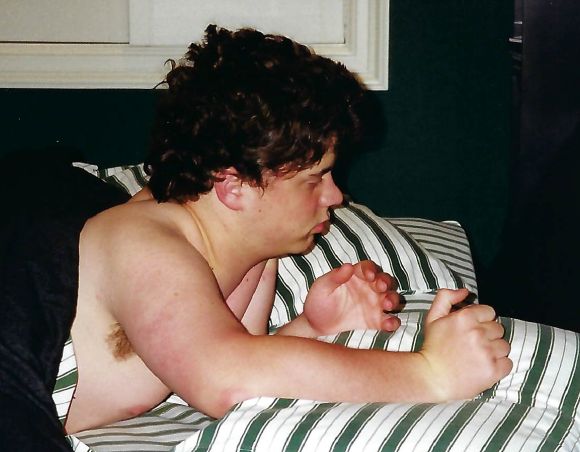
This post continues last week’s. That entry covers how when I was younger, suggestions for good sleep seemed few and far between, and psychiatry provided no help — in fact, the conventional mental health industry just made things worse, as in this very sad story, published Friday and written by a third-generation Chinese-Malaysian woman living in Kuala Lumpur: after Grace Tan developed insomnia brought on by understandable worries over her right eye’s inflammation, the prescription of twelve different sleep and other psychotropic drugs in a single year, including recommended force-feeding of pills, disabled her, a multilingual translator, world-traveler, and marathon-runner, to the point she’s now diabetic, jobless, and bedridden. There are better ways; perhaps we could pursue them.
Here in the United States, people — even many nominally “progressive,” thinking of themselves as imbued with correct politics — thump their chests and insist they’re fiercely independent rugged individualists who don’t care what others think or feel, but clear-eyed observation is enough to show that they’re, or we’re, stuck in comfort zones and at the mercy of predatory employers, landlords, politicians, and the rest; what’s more, the apotheosis of creating wealth for the wealthy (“work”) maintains a fearful climate in which USians, scared of what bosses think, don’t address their problems aloud, and instead, Gollum-like, quietly recast them as unique and innate specialnesses. The reality is, some 20% of USians take psychiatric drugs (estimates vary), so whatever the particular demons — opioids, alcohol, gambling, the list goes on — it’s likely neighbors and friends are in the same or a similar storm. Rather than die by keeping romanticized pain secret in order to uphold fake pride, let’s learn to enjoy strengthening ourselves, together.
Last week, I advised developing three skills for falling asleep: two related to mindset, and one, the information that’s helped me most with falling asleep, related to lighting. Now I’ll continue with a grab-bag of additional sleep suggestions, mostly revolving around falling asleep, but still touching on staying asleep and waking up promptly. After that, two very quick news blasts on Haiti and Serbia.
Ya gotta knows how to doze
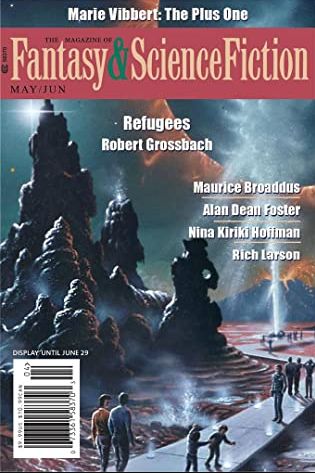
Lighting, extra. I discussed lighting and sleep in my 6 August ’21 post, but since then, I chanced across something neat on the topic. SF writer and amateur astronomer Jerry Oltion’s science column in the May/June 2021 issue of The Magazine of Fantasy & Science Fiction covers, in a quick six pages titled Let there be light, the history of humanity’s lighting inventions. He starts with the naked eye and proto-humans gaining control over fire an estimated million years ago. Oltion then blazes through (see what I did there) the subsequent history: torches, animal fat lamps, vegetable fat lamps, the central draft fixed oil lamp in 1780 and the hunting of whales for it, candles (including some using beeswax and then paraffin), gas lighting in the 19th century, incandescent electrical bulbs, fluorescents, phosphorescent coating, sodium vapor streetlights, electroluminescence and various light emitting diodes (LEDs), and predicted future improvements to LED technology. There’s no tip in his text directly tied to falling asleep, but I think Oltion’s article is a handy, compact overview to have around on the subject for anyone wanting to delve in deeper.
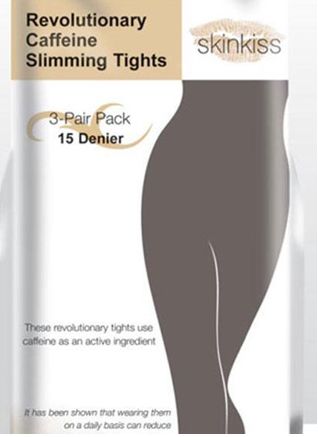
Ban caffeine. I don’t mean governments should ban caffeine necessarily (although they have before, and the FDA and US state governments have called or made caffeinated alcoholic drinks, blackouts in a can, illegal), but rather, you should ban caffeine from your own life — save for emergency use. Using a dramatic term like ban in my head helps me stay on the no-caffeine wagon. The very first posts to this blog, nearly thirteen years in the past (see here and here), focused on my trying to quit caffeine after admitting my life was to a great extent controlled by the stupid chemical. Really, it took me a decade of on-again, off-again to cut it out permanently! I basically never have caffeine nowadays. Imagine you’ve never had caffeine before. You’re at a baseline level of wakefulness as a result, assuming all else is equal. Now you have coffee. This is great! Enhanced energy is yours. You keep downing coffee each morning. After several mornings of this, you’re dependent: in the morning, prior to caffeinating, you feel miserable from withdrawal. Caffeinating no longer even brings benefits; merely deceptive pleasure that’s actually from just removing the withdrawal. That’s a theory of caffeine-researching scientists in a May 2008 New York magazine article, and it holds true in my experience. The journalist summarizes the scientists: for habitual users, the “positive feelings we associate with drinking coffee don’t represent a net gain in energy or alertness; they’re really the result of withdrawal maintenance.”
From what I’ve seen, only rarely using caffeine brings three amazing boons. First, you can keep some around for an emergency situation, or maybe for something like a job interview where you need to appear peppy. You can sip the caffeine once, reap real benefits, then immediately quit it again without suffering withdrawal. Second, whenever you wake up, you’re instantly ready to go without having to toddle to the beverage and drink it for permission to start your day. Third, cutting out caffeine helps tremendously with falling asleep. The New York article quotes psych professor and coffee researcher Laura Juliano: “You have people drinking caffeine all day and taking sleeping pills at night.” That’s madness! The article also quotes the director of a sleep lab, Charles Pollak: “We routinely ask patients who are insomniacs to discontinue the use of caffeine, or reduce it” But I say quit it entirely. It’s a physiological stressor, contributing hugely to the total amount of stress paralyzing whole populations. Consider that, maybe, you’re not a born failure with a broken brain; it’s pouring corporate sugar-caffeine junk down your throat daily that has a harmful effect on your mental state.
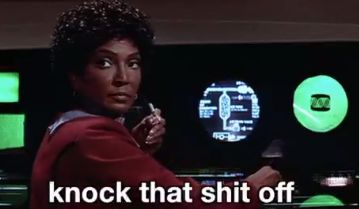
Yet there’s one barrier I haven’t been able to talk people trying to quit it through. Namely, they quit caffeine, then notice no improvement in their sleep problems, and then use that as proof that caffeine-drinking or lack thereof is irrelevant to their issues. They begin drinking it again (like I did during a decade of struggle). So once more: imagine. You’re onboard with Captain Kirk & co., flying through a gaseous planet’s unruly atmosphere. The Enterprise is struggling with five lightning bolt-crazed nimbus clouds, four tornadoes, three hurricanes, two dust devils, and a partridge doing LSD. Despite the dire situation, Spock, in the science officer seat, manages to take out one of the five nimbus clouds with a mighty volley of technobabble. “We’re down to four nimbus clouds, but it’s not any better,” Chekov complains. Then Kirk makes an astonishing decision. He says, “I can’t tell much difference either” — he raises an executive forefinger — “Spock, bring the fifth nimbus cloud back.” Spock narrows his famous brows. “Captain, I find your order illogical.” Kirk shrugs and says, “What is truth?” Surely now Uhura must lay down the law: In the quest to remove difficulties, fewer problems are better for the Enterprise than more, so regardless of the men’s foggy perceptions, there’s no good reason to resurrect the dangerous cloud. Don’t give up after overcoming just one threat; before it’s smooth sailing, the journeyers have to eliminate most or all of the weather hazards. In other words, to improve your sleep, you have to overcome multiple factors — caffeine, glowing screens, tobacco use, lack of exercise, ignoring routines and rhythms, and on and on — before noticing improvement and succeeding.
No more nicotine. Another stimulant to eliminate. As Madness Radio host Will Hall likes to point out, humans have been altering their states forever: it’s a major part of life and presumably always will be. So I don’t mean to be a prude. But coffin-nails should be for special occasions, if at all, and certainly abandoning your natural energy rhythms for cigarette boosts is a bad move. Anarchists buying corporate poison … shaking my damn head.
Avoid alcohol. A depressant to eliminate. To quote from the appendix of Dr Matt Walker’s excellent book Why We Sleep: “Having a nightcap or alcoholic beverage before sleep may help you relax, but heavy use robs you of REM sleep […] Heavy alcohol ingestion also may contribute to impairment in breathing at night. You also tend to wake up in the middle of the night when the effects of the alcohol have worn off.” Again, I find alcohol to be a special occasion thing. It does help me loosen up and play guitar better, especially around other musicians, yet the long-term solution to that is to figure out how not to be so stiff emotionally in the first place. When I go months and months without alcohol, I perform better in life overall, including for falling asleep.


Herbal tea to the rescue. To replace caffeine at coffeeshops, or “decaf” coffee which still has a bit of caffeine in it, order herbal tea. It’s caffeine free. There’s a variety of tasty types that offer a range of benefits for different ailments. Some herbal teas induce sleep, so they’re good to add to wind-down rituals. For that, I like Yogi Tea’s soothing caramel bedtime tea and Traditional Medicinals’ Nighty Night Extra.
Miss large meals and beverages late at night. A long-time practice of athletes. To stabilize sugar levels after the fast of sleep, have a little protein immediately upon waking and immediately before bed (almonds work for me). Following morning exercise, eat a huge meal, then taper the portion sizes down as the day progresses. Digesting large meals during sleep distracts the body from, well, sleeping. Too many fluids = gotta pee. However, if it’s really hot, be sure to drink enough water to protect against heat exhaustion and other heat hazards. With the conventional mental health system focusing on Are you still taking your meds? it might seem strange to emphasize so strongly what food and beverages we ingest and digest. But think about it. With arms and legs like rays off to the sides, the gastrointestinal tract is centrally located in the body, suggesting its central importance. The thermic effect of digestion burns lots of calories, i.e., the body expends massive energy on digestion, because it’s crucial. You are what you eat.
Stick to a schedule. Go to sleep and get up at the same time every day, seven days a week. Otherwise, it’s like giving yourself jet lag. Monday through Thursday, you’re in a particular city; then you stay up on the weekend, as if flying to a different time zone. The weekend woefully ends, and it’s back to the first city, or maybe even off to a third time zone. No wonder people feel like garbage. When I’m arising at the same time each day, if one night I have to stay up late, then even if I procure only three or four hours of sleep total, I still manage to wake up and drag myself (without drinking caffeine!) to wherever on time. Walker says in his book’s appendix that sticking to a sleep schedule, to the point of setting an alarm if necessary for initiating wind-down, is his single most important tip.
Exercise, cardiovascular exercise in the mornings, do it. Professional athletes aside, don’t exercise hard in the evenings, as the energy can keep you up. In contrast, morning cardio, in my experience, is great for stabilizing someone and their sleep schedule. I like running, but some like swimming, others bicycling. In the past few months, I’ve been learning to jump rope, which is time-saving compared with distance running.
Cool temperature in the bedroom. Global warming heat-domes and wildfires don’t help, but if you can, keep your bedroom slightly cool, for instance by sleeping nude or nearly nude, perhaps with sweat-absorbing bamboo sheets (cooler than cotton). Also bamboo pillows and bamboo mattress protector. The ones linked are the ones I use and like.
Hot bath with magnesium flakes before bed. A warm bath is obviously relaxing, including for muscles and sinew. A bath slows you down, necessary preparation for entering and engaging in that enormous eight-hour task of sleeping, one-third of your life, take it seriously. Moving out of the bath means stepping into cold air, and that sudden temperature drop assists with inducing sleepiness (just like the cool temperature in the bedroom). Magnesium flakes are friggin’ expensive, but putting them in the bathwater will help with relaxation, muscle recovery following exercise, and falling asleep. Topical magnesium lotion for massage, same thing. I hear from my awesome primary care physician that there’s a lot more to the magnesium stuff; I just haven’t read much about it yet.
Sleep at night, not during the day. I try to always avoid napping. If I get little sleep on a night, I’ll still drive myself to endure till the next sundown, to keep my sleep schedule intact. That’s served me well. Some cultures have siestas; and admittedly, brief naps can be nice. Elders tend to nap because as people age, bodies apparently produce less melatonin, resulting in trouble with falling asleep, something Walker goes into in great detail about in his book (along with the connection between sleep loss and dementia). In the Why We Sleep appendix, Walker says not to nap after 3 p.m. Stay diurnal. Working at night especially wreaks havoc on humans. One of my favorite bands, R.E.M., conveys the hell of nightshift work in their fantastic 1998 song Daysleeper (“I see today with a newsprint fray / My night is colored headache gray / Don’t wake me …”).
Don’t lie in bed awake if you can’t fall asleep. There are two biological systems governing sleepiness that operate independently of each other. One is our circadian rhythm, where, a little like a sine wave graphed across time, you involuntarily have more or less energy in cycles throughout the day. For instance, it’s well known that people have a slump in the early afternoon (when siestas are generally scheduled in some countries). Similarly, people sometimes get second-wind energy boosts if they stay up super late, as their rhythm fluctuates. Distinct from these circadian waves is adenosine. It’s the “sleep pressure” molecule that simply accumulates in the brain the longer we go without sleep, making us tireder and tireder as time goes on, a positive linear slope, until we finally collapse. Thus, getting in bed for sleep right when your circadian rhythm starts supplying you with a natural energy boost might prevent you from falling asleep. Lying there for hours won’t help; it’ll make you only more anxious about sleep. So get up, keep the LEDs and loud music off, and do something simple like sit in a warm bath reading something not too thought-provoking. The adenosine will add up, and the circadian crest will eventually turn toward a trough, and you’ll be ready for nighty-night. Even fungi and cyanobacteria have circadian rhythms; you can’t fight millions of years of Nature’s rhythms, so learn them and work with them. For instance, I believe there are distinct names for the various cycles in a human’s daily circadian rhythm. I don’t yet know the names; learning them would be a good first step toward being able to identify which precise phase I’m in as I go throughout my days and nights.

Sleep position. When I was very little, I decided to sleep on my back. I reasoned that if I slept face down, the additional weight from my body would push my heart to beat faster, tiring it out sooner and leading to an earlier death. For some reason I don’t remember, I didn’t consider sleeping on my side, maybe because I found it uncomfortable. Fast forward to my thirties, when now I snore some. The medical industry would want to throw a CPAP (Continuous Positive Airway Pressure) machine at me (pictured) to combat the apnea/snoring, which is literally gasping for air. That gasping seriously disrupts sleep quality and in very bad cases, it can even kill people in the night. See for instance Star Wars actress Carrie Fisher, diagnosed with bipolar disorder, for whom — in addition to cocaine, alcohol, and other drugs — sleep apnea was a contributing cause of her 2017 death. Well, you know me, I want solutions to increase, not decrease, autonomy. I learned that relative to sleeping on your back, side-sleeping, especially with your head propped up by a big pillow and a hand or two, increases airflow. You want to sleep on your left side because, among other reasons, your small intestine empties to the left, meaning if you sleep on your right side, you’re asking your digestive tract to work uphill for eight hours. I started sleeping on my left side. My sleep quality increased dramatically — I was far more rested the next days — and a co-sleeper confirmed the snoring decreased significantly, enough so she wasn’t bothered. But then I had another problem! My left arm felt tingly during the days, asleep along the left side and left pinky, some sort of odd nerve problem. Via online forums, I learned this is actually a common complaint people have when they start side-sleeping. Maybe the additional body weight newly pressing down on the left side all night long? I asked a sleep doctor about it and predictably, the professional knew not a damn thing. Like a knee hit with a hammer, the doc just spat out predictable responses to whatever I said, no better than if I’d simply searched WebMD.com. Anyway, after an MRI ruled out certain serious worries, I had a nerve test done, where they stuck needles into my left arm and sent electrical jolts into it to move my fingers, just like how in ordinary life, the brain sends electrical jolts to do the same. It was pretty cool! This neurology test identified the problem as originating in my left elbow. So, they narrowed it down. I then adjusted how I splay my arms as I’m falling asleep. I continue putting my right hand sandwiched between the pillow and my head, raising my airway. But I stick my left arm out in such a way as to keep pressure off the elbow. That approach reduced the tingly, arm-asleep issue somewhat. Yet during the night, I sometimes move my arms around involuntarily, meaning it’s unpredictable how much pressure the left arm will get and how much it’ll tingle the following day. The neurologist also gave me a pad to wear around my left elbow during sleep, but I haven’t experimented with it yet, my bad. I do hypothesize that perhaps the whole problem is due to being slightly overweight, and that fixing that by continuing to taper off the psych drugs would help restore normal sleep, maybe making the left arm issue less of a deal somehow? We’ll see.
Sounds like bedtime. Some find that playing white noise or other soothing sounds helps them fall asleep. It can smooth out the random jarring sounds from the outside world, like dogs barking or cars backfiring or, heaven forbid, gunshots, screaming, etc. Luckily, I tend to automatically tune out urban noise, at least here in Seattle, when falling asleep. I know some people find success with earplugs. I used to co-sleep with someone who played ocean sounds when falling asleep, and it was nice because I started associating the ocean sounds with her. That was years ago. Experiment to find whatever works…
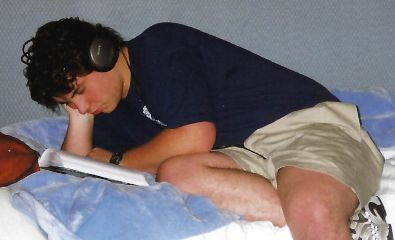
Use the bed for only sleep and…? If you read advice on sleep, there’s a standard phrase advising readers to use the bed for only sleep and sex. The idea is that mentally associating the bed with non-sleep activities makes it more difficult to fall and stay asleep. But why use the bed for sex, then, since sex isn’t sleep? I asked a sleep doctor the question once, many years ago. He admitted there’s no reason other than convenience. So ideally, partners or someone engaging in solo-sex would use a separate location (such as another bed if there’s one available, or more creative ideas), keeping the sleep-bed dedicated to just that one purpose. Many will read for prolonged durations in bed, but that can be problematic, associating the bed with mental effort instead of with chilling and slowing down. This also means leave your glowing gadgets out of the bedroom. Remember, sleep is a major component of your life, so it makes sense to have an area dedicated exclusively to it.
Run away from psychiatrists. Getting hooked on sleep-inducing psychopharmaceuticals is, well, a bad idea, as Grace Tan’s story linked in this post’s first paragraph illustrates. Scary articles about bizarre Ambien behavior pop up regularly. If I use an anti-anxiety benzodiazepine to aid in falling asleep, the next day my mind usually feels fragmented, like all the pieces of memory and emotion from the previous day haven’t been sorted by sleep, giving me no fresh start. A little melatonin is not too bad to take sometimes, especially to cope with unavoidable problems like jet lag. It’s a naturally occuring endogenous hormone. But if you’re doing well with sleep overall, a mere two or three milligrams of melatonin in rare instances is definitely enough — I’ve seen melatonin for sale in stores in single pills of 10 milligrams each, which is crazy excessive, and I can picture people sadly taking it daily after drinking corporate sugar-caffeine all hours.
In Why We Sleep, Walker writes in chapter 14:
“Results, which have now been replicated in numerous clinical studies around the globe, demonstrate that [cognitive-behavioral therapy for insomnia] is more effective than sleeping pills in addressing numerous problematic aspects of sleep for insomnia sufferers. [The therapy] consistently helps people fall asleep faster at night, sleep longer, and obtain superior sleep quality […] More importantly, the benefits of [the therapy] persist long term, even after patients stop working with their sleep therapist. This sustainability stands in stark contrast to the punch of rebound insomnia that individuals experience following the cessation of sleeping pills. So powerful is the evidence favoring [the therapy] over sleeping pills for improved sleep across all levels, and so limited or nonexistent are the safety risks associated with [the therapy] (unlike sleeping pills), that in 2016, the American College of Physicians made a landmark recommendation […] Published in the prestigious journal Annals of Internal Medicine, the conclusion from this comprehensive evaluation of all existing data was this: [cognitive-behavioral therapy for insomnia] must be used as the first-line treatment for all individuals with chronic insomnia, not sleeping pills.”
Ergo, the funny little men in white coats aren’t the answer, as the popular two-minute novelty song from 1966, embedded below and created by one-hit wonder Napoleon XIV, hints (“the funny farm where life is beautiful all the time…”):
Cognitive-behavioral therapy for insomnia strives to alter basic behaviors and beliefs around sleep. I’m not sure individuals actually need such therapists, though. Therapists can get their clients confined in mental hospitals or hooked on drugs. Maybe just read this post, or Walker’s book, or similar, and implement the ideas yourself? You likely gain more confidence and autonomy that way, anyhow.
Wind-down ritual. It’s good to have a soothing evening ritual that you do daily to slow down and prepare for bed. Mine basically involves checking in with my logbook followed by a hot bath with herbal tea. I’ll read something non-challenging while bathing, to take my mind off things. Nowadays, as night approaches, I really look forward to my wind-down ritual.
Variety, spice, life. Some things I recommend might not work for you; your mileage may vary. For instance, sleepers seem to differ greatly when it comes to napping or preferences for soothing fall-asleep sounds.
Horror stories. Matt Walker’s book Why We Sleep is packed with terrifying facts about just how badly living short on sleep screws up your physical health, your mental health, and your performance on tasks, including intellectual and creative ones. Consider the harm bad sleep inflicts on physical health (chapter eight in his book): scientists conducted
“carefully controlled experiments with healthy adults who had no existing signs of diabetes or issues with blood sugar. In the first of these studies, participants were limited to sleeping four hours a night for just six nights. By the end of that week, these (formerly healthy) participants were 40 percent less effective at absorbing a standard dose of glucose, compared to when they were fully rested. To give you a sense of what that means, if the researchers showed those blood sugar readings to an unwitting family doctor, the GP would immediately classify that individual as being pre-diabetic. They would start a rapid intervention program to prevent the development of irreversible type 2 diabetes. Numerous scientific laboratories around the world have replicated this alarming effect of short sleep, some with even less aggressive reductions in sleep amount.”
Or the harm bad sleep inflicts on mental performance: “Sleep six hours or less and you are short-changing the brain of a learning restoration benefit that is normally performed” — a big reason why early school start times impair young learners. Also drowsy-driving car accidents: “This coming week,” Walker writes, “more than 2 million people in the US will fall asleep while driving their motor vehicle”, usually micro-sleeps, such that per car, “there is now a one-ton missile travelling at 65 miles per hour, and no one is in control” even if only briefly. He adds, “Shamefully, governments of most developed countries spend less than 1 percent of their budget educating the public on the dangers of drowsy-driving relative to what they invest in combating drunk driving.”
At the end of the book, Walker concludes:
Within the space of a mere hundred years, human beings have abandoned their biologically mandated need for adequate sleep — one that evolution spent 3,400,000 years perfecting in service of life-support functions. [… This] is having a clear [negative] impact on our health, our life expectancy, our safety, our productivity, and the education of our children. This silent sleep loss epidemic is one of the new public health challenges we face […] a radical shift in our personal, cultural, professional, and societal appreciation of sleep must occur. I believe it is time for us to reclaim our right to a full night of sleep, without embarrassment or the damaging stigma of laziness. In doing so, we can be reunited with that most powerful elixir of wellness and vitality […] Then we may remember what it feels like to be truly awake
Good news. If you prioritize sleep, you now have a secret weapon. You’re no longer a sleep-machismo type, self-sabotaging by needlessly burning the candle at both ends and bragging about how few hours you sleep. Instead, you’re stronger and healthier, more attractive, more productive, and more creative! Walker makes up a fictional advertisement for sleep:
Amazing breakthrough! Scientists have discovered a revolutionary new treatment that makes you live longer. It enhances your memory and makes you more creative. It makes you look more attractive. It keeps you slim and lowers food cravings. It protects you from cancer and dementia. It wards off colds and the flu. It lowers your risk of heart attacks and stroke, not to mention diabetes. You’ll even feel happier, less depressed, and less anxious. Are you interested?
“The ad,” he explains, describes “the proven benefits of a full night of sleep.” Imagine doctors putting that on a prescription pad!
Brick by brick. If this all feels overwhelming, simply pick one bullet-point to experiment with and implement in your life. Baby steps. It’s better to spend a month mastering a single improvement than it is to not do anything or try to do everything at once and fail. And remember, if you implement simply one little thing, you, like Chekov and Kirk, might not notice improvement. You just have to keep going, adding more bullet-points until you finally do succeed. Good luck!
News blasts: Haiti and Serbia
Haiti. My posts two weeks ago and last week discussed the assassination of tyrannical Haitian president Jovenel Moïse just a little over a month back. As recently as June, intense gang violence in the capital city was displacing thousands and contributing to buildings being burned down and to rape. The assassination then added more instability in a place already suffering from famine. Now, on Saturday morning, a 7.2-magnitude earthquake struck western Haiti. The prime minister Dr Ariel Henry said on Twitter the Haitian government will declare a state of emergency. While the earthquake this morning, because of its location, isn’t as devastating as the 7.0-magnitude earthquake in 2010 that destroyed critical infrastructure and killed hundreds of thousands, today’s disaster has killed hundreds so far and significantly adds to the chaos in the country. On August 2, the UN Security Council said the possibility of a peacekeeping mission in Haiti has been formally raised; this morning’s earthquake increases the odds that will happen, I suspect. I’ll continue news-blasting about the unsolved assassination next week.
Update Sunday August 15: More than 700 deaths in Haiti due to the earthquake now, according to the Haitian civil protection office, which also notes nearly 3,000 injured and nearly 7,000 homeless. The tropical storm Grace is hitting the country, too, with heavy rains forecast for Monday, further complicating relief efforts. The United Nations Office for the Coordination of Humanitarian Affairs states in a 3-page PDF report from today that the “quake could not have come at worst time for Haiti, which is still reeling from the assassination of President Jovenel Moïse on 7 July and escalating gang violence which has resulted in the internal displacement of around 19,000 people in the country’s southern peninsula, greatly worsening an already precarious humanitarian situation, with some 4.4 million in need of humanitarian assistance prior to the quake.” The report also says their Emergency Operations Centre “has been fully activated and search-and-rescue operations are ongoing with support from international partners. Preliminary assessments are being carried out under the leadership of national authorities, but it will likely take days, if not weeks, to fully assess the scale of damages and humanitarian needs.” The most urgent humanitarian needs are likely to be for medical assistance, water, sanitation, and hygiene. Here are photos from the earthquake compiled by NPR.
Badassery in Serbia. Yesterday the AFP published this fun article: Cave hermit gets COVID-19 vaccine, urges others to follow. Below, I embed a photo from the article and the 90-second video the AFP posted on twitter.
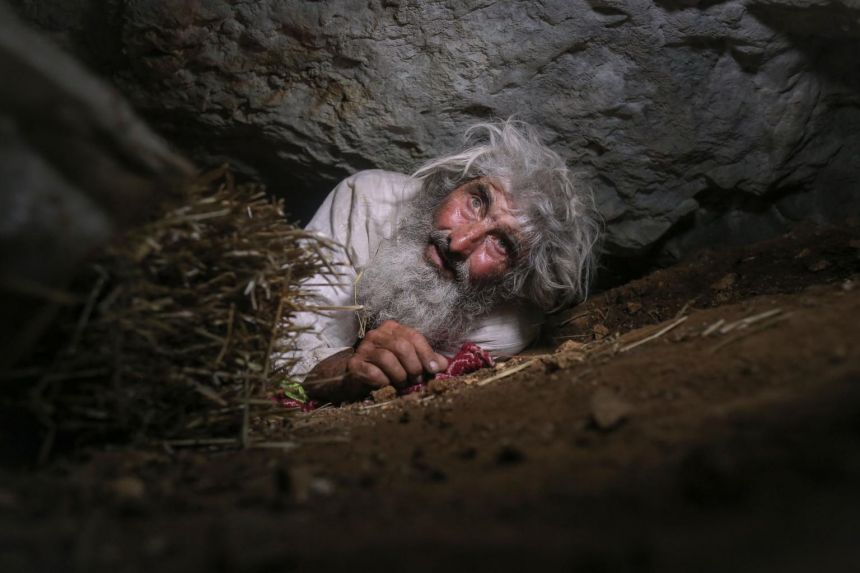


This blog post, Skills for falling asleep, 2 of 2; news blasts for Haiti and Serbia by Douglas Lucas, is licensed under a Creative Commons Attribution-NonCommercial-ShareAlike 4.0 International License (human-readable summary of license). The license is based on the work at this URL: https://douglaslucas.com/blog/2021/08/14/fall-asleep-skills2-haiti. You can view the full license (the legal code aka the legalese) here. For learning more about Creative Commons, I suggest reading this article and the Creative Commons Frequently Asked Questions. Seeking permissions beyond the scope of this license, or want to correspond with me about this post one on one? Email me: dal@riseup.net.
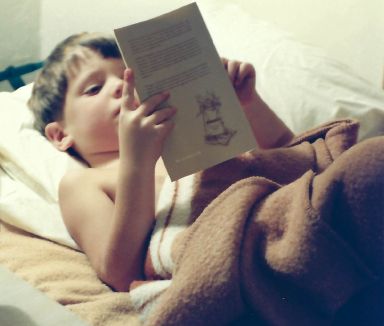
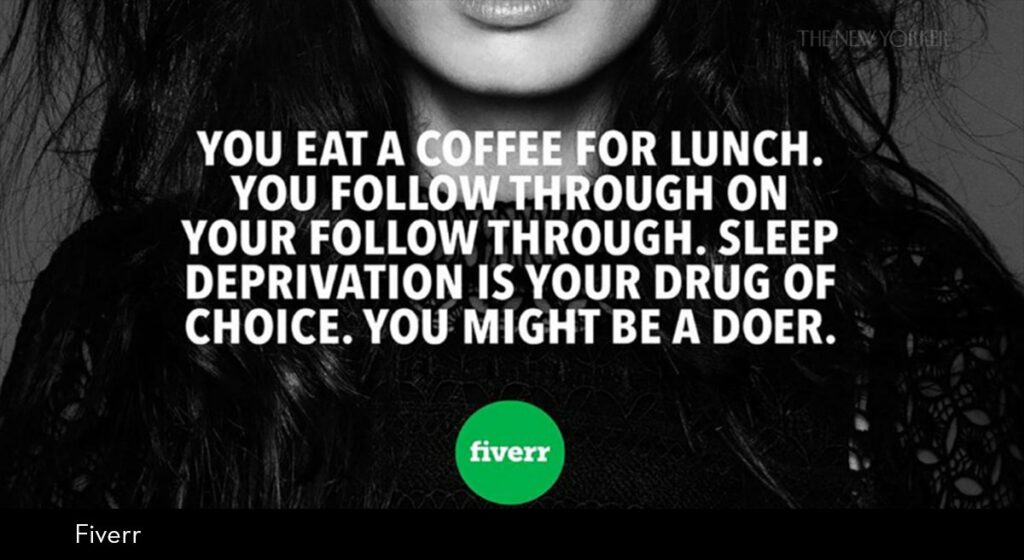

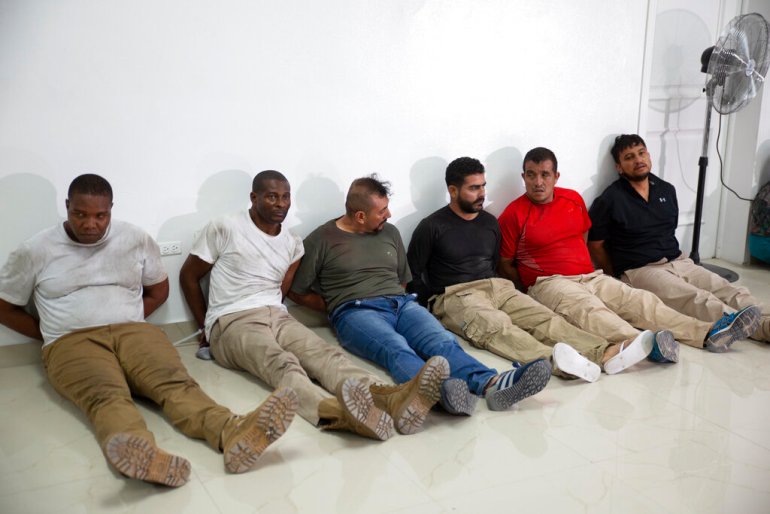
 Twitter:
Twitter:
Join the conversation